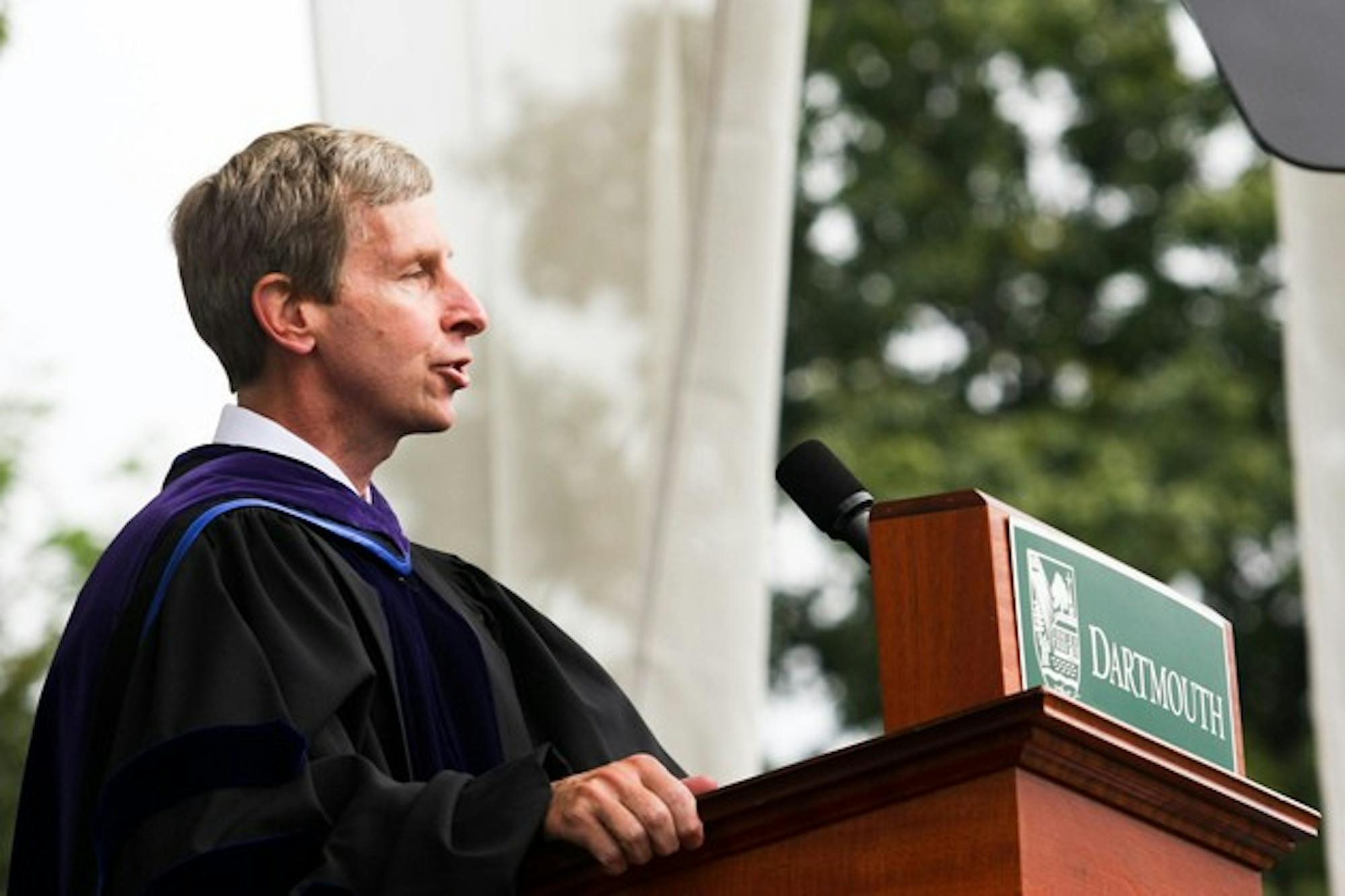Medicaid, the government-run insurance program for low-income individuals and families, has seen increased demand this year due to the economic downturn.
"It's a burden we simply can't absorb these costs in good times, let alone right now," Manning said.
Several of the health care reform proposals currently circulating in Congress would require all states to extend their Medicaid coverage to residents who earn less than 133 percent of the federal poverty level, or $29,300 for a family of four, the Concord Monitor reported. Currently, New Hampshire offers Medicaid coverage to pregnant women, low-income children and low-income parents if the family income is less than 63 percent of the poverty level, or $13,900 for a family of four.
The new limit would make about 83,000 additional citizens eligible for coverage, costing the state of New Hampshire an estimated $177 million over the program's first six years, the Monitor reported.
The recession has already resulted in a large increase in New Hampshire's Medicaid rolls. This September, 114,862 people paid for treatment through Medicaid, a 10-percent increase over last year. New Hampshire also received 6,159 new applications for Medicaid, a 14-percent increase from September 2008.
The federal government covers half of New Hampshire's Medicaid costs.
To help with the increased costs of expanded Medicaid coverage, Washington would pay 85 percent, at least in the early years of the program, the Monitor reported.
"A general concern among governors is that the cost may be shifting down to the states," Manning said. "But I understand that this is something Congress is working on, in addition to other proposals."
Without increased aid from the federal government, New Hampshire's Medicaid costs could rise by $700 million.
Medicaid expansion may also force doctors and health care providers to turn away more patients. Reimbursement rates for treatment are already low for Medicaid patients, and many doctors and health care providers refuse this form of insurance, the Monitor reported.
"The problem of course is cost and equity," Dartmouth government professor Linda Fowler said in an interview with The Dartmouth. "Many states feel, rightly so, that because they pick up a share of Medicaid costs that this becomes an unfunded mandate."
Fowler also said that because some states are able grant more Medicaid funding, "This proposed approach to the uninsured simply perpetuates these inequalities."
Lynch was one of six Democratic governors who did not sign a letter last week calling for a health care reform bill this year. Speaker of the House Nancy Pelosi, D-Calif., has since contacted Lynch's office to hear his concerns.
Fowler said it is too soon to tell whether the federal government is adequately addressing the issues raised by the few dissenting governors.
"I don't know whether Lynch's concerns about expanding Medicaid are just a question of the additional cost, or whether these are more fundamental differences about the need for a public option to take the burden of insurance off of the working poor," Fowler said.




